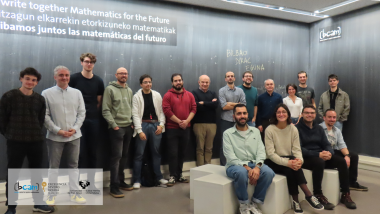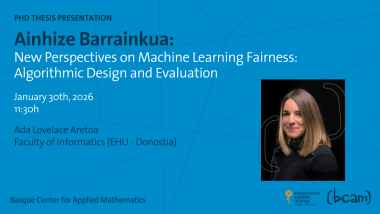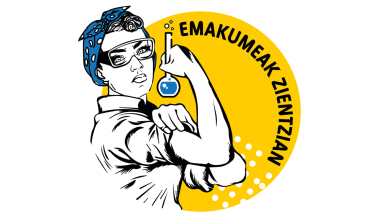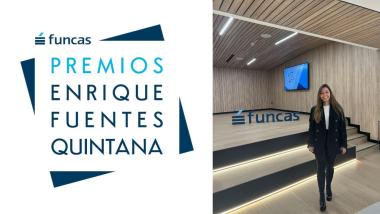BCAM achieves outstanding success at NeurIPS 2025 with four accepted papers
- NeurIPS is the world’s leading conference in artificial intelligence, machine learning, and computational sciences. Acceptance to NeurIPS is highly competitive, with only a small fraction of submissions selected after a rigorous peer-review process.
- This year’s success reflects the strength and diversity of BCAM’s scientific activity, with contributions spanning from fluid dynamics to cutting-edge advances in machine learning.
The Basque Center for Applied Mathematics - BCAM is proud to announce that four papers from its research teams have been accepted to the prestigious Conference on Neural Information Processing Systems (NeurIPS) 2025. This is a remarkable achievement that highlights BCAM’s growing international presence at the forefront of research in mathematics and machine learning.
NeurIPS is the world’s leading conference in artificial intelligence, machine learning, and computational sciences. Acceptance to NeurIPS is highly competitive, with only a small fraction of submissions selected after a rigorous peer-review process. For instance, only a handful of papers from Spanish institutions are accepted each year. For BCAM, having four accepted papers in a single edition of NeurIPS is an exceptional accomplishment that underscores both BCAM’s international impact and its leadership at the national level.
This year’s success reflects the strength and diversity of BCAM’s scientific activity, with contributions spanning from fluid dynamics to cutting-edge advances in machine learning:
- Paper from the Computational Fluid Dynamics Group:
- “PINN Balls: Scaling Second-Order Methods for PINNs with Domain Decomposition and Adaptive Sampling” by Andrea Bonfanti, Ismael Medina, Roman List, Björn Staeves, Roberto Santana and Marco Ellero. https://arxiv.org/pdf/2510.21262
This paper presents PINN Balls, a scalable Physics-Informed Neural Network framework that uses a local Mixture of Experts architecture to enable efficient second-order optimization for solving PDEs. By integrating Adversarial Adaptive Sampling for learnable domain decomposition, the method achieves state-of-the-art accuracy and scalability while maintaining theoretical soundness.
Papers from the Machine Learning Group:
-
- “On the Optimality of the Median-of-Means Estimator under Adversarial Contamination” by Xabier de Juan and Santiago Mazuelas. https://arxiv.org/pdf/2510.07867
This work analyzes the Median-of-Means (MoM) estimator under adversarial data contamination, establishing new upper and lower bounds on its estimation error across different distribution classes. The paper shows that MoM remains minimax optimal for distributions with finite variance and certain heavy-tailed cases, but becomes suboptimal for light-tailed distributions, clarifying its theoretical limits beyond the Gaussian setting.
-
- “Robust Minimax Boosting with Performance Guarantees” by Santiago Mazuelas and Verónica Álvarez. https://arxiv.org/pdf/2510.13445
This work introduces Robust Minimax Boosting (RMBoost), a boosting framework that minimizes worst-case error probabilities to achieve robustness against general types of label noise. The paper provides comprehensive theoretical guarantees for the methods introduced and demonstrate empirically that RMBoost maintains strong classification accuracy even in noisy settings, outperforming existing robust boosting methods.
-
- “Split conformal classification with unsupervised calibration” by Santiago Mazuelas. https://arxiv.org/pdf/2510.07185
This work proposes a new methodology for split conformal prediction with unsupervised calibration, allowing calibration without needing additional labeled data. The paper combines unlabeled calibration samples with the original training set, achieving performance close to that of supervised calibration while incurring only moderate losses in theoretical guarantees and efficiency.
It is important to highlight the four papers address quite different topics. This clearly shows the breadth and depth of the research carried out, and the ability of BCAM’s multidisciplinary teams to impact multiple areas of international relevance.
This outstanding achievement strengthens BCAM’s position as a global reference in applied mathematics and as a key contributor to the Spanish research ecosystem, inspiring continued collaboration across disciplines to address today’s most pressing scientific and technological challenges.
Related news




